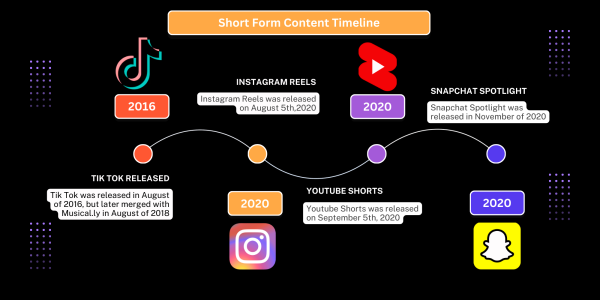How political views affect families
Anti-partisanship across the United States has resulted in tension between families and friends.
Many can agree, and some have even noticed recently, that during periods of hyper-partisanship, civil discussion can be hard to come by, even within families. While political debates have nearly always been common on the national level, when taken to the dinner table, they can bring about both animosity as well as open-mindedness.
There is a reason why children growing up with two parents of the same political stance tend to adopt that stance well into adulthood, although this is not always the case.
“When students continue to grow and are more attuned to their own personal beliefs, then you can have that separation from parents to children,” noted law and government teacher Ms. Amy Holtsford.
In some families, members have different political stances but are able to talk productively about their beliefs. For senior Anna Schellin, family discussions surrounding politics are frequent. Her parents identify on different sides of the spectrum, and Schellin and her brother have conflicting views as well.
“[My family] is still able to have concise discussions about it, though. No one really attacks each other. We all try and educate each other, even if we disagree,” explained Schellin.
While there are families that embrace politics with little conflict, when it comes to speaking about politics within the family, Ms. Holtsford prefers to limit the discussion, especially when she doesn’t consider it the time or place.
“Sometimes you just need to [refrain from discussing politics] to keep the peace with family members,” she stated. When both members of the discussion are entrenched in their beliefs, she said, it can be better to agree to disagree rather than raise tempers and voices for viewpoints that aren’t going to change.
Ms. Holtsford clarified that people in relationships, including married couples, are also more likely to have aligning views, especially as a result of modern hyper-partisanship.
“There used to be more overlap talking about party identification, having conservative Democrats and moderate or liberal Republicans, and there was a significant overlap. That overlap has almost completely vanished,” she emphasized.
Ms. Holtsford certainly has a point in that there has been a growing disparity between Republicans and Democrats in recent years. According to the Pew Research Center, in 2014, 92 percent of Republicans fell to the right of the median Democrat, with 94 percent of Democrats to the left of the Republican median.
Partisanship friction has also increased, as shown by Pew: 27 percent of Democrats see the Republican Party as a threat to the nation’s well-being as opposed to 16 percent in 1994. In the same survey, 36 percent of Republicans saw the Democratic Party as a threat to the nation’s well-being, increased from 17 percent in 1994.
Being in a family with contrasting views means more exposure to different backgrounds and thought processes as well. “If you’re in a family where both parties are represented… I feel like you can be more comfortable with your identity, being able to choose left or right,” Schellin stated.
Ms. Holtsford agreed that it is generally beneficial for children to grow up in a household with varying stances, although she acknowledged it is steadily becoming much more rare.
Sometimes, couples maintain elements of their views while compromising some to meet the views of their partner.
“When you’re in a relationship with someone who has opposing views, you’re just going to become even more entrenched in your original view. Or you could listen with an open mind and maybe even convert a little bit,” stated Schellin. In her family, she noted, they would discuss politics at the dinner table, especially during the 2016 election.
“I don’t think today’s hyper-partisan era that we’re living in would necessarily mean that we would be more or less likely to adapt the views of parents, but I think we would be more likely to view the opposing side with a little more criticism than in the past,” clarified Ms. Holtsford. This can be attributed to a multitude of problems, including but not limited to accusing the “other side,” leading to arguments focused more on personal insults rather than open-minded conversation.
Instead of this kind of arguing, Ms. Holtsford suggested looking closer at the history of political and social decisions. “We need to be more introspective when we take a look at policy issues and what our policies were in the past that led to a lot of atrocities,” Ms. Holtsford stated.
In terms of making compromises, Schellin expressed that she makes an effort to listen, although it depends on how well she knows the person and whether or not she believes what they are saying is factually correct, as opposed to belief-based.
“As long as someone’s political views don’t disrespect someone else’s existence, then I can make peace with it,” she stated.
On the bright side for Ms. Holtsford, she has noticed that her government and law classes seem particularly apt when it comes to civil discussion. “We wait our turn and then we’ll say our two cents worth. We need all of society to buy into that, that’s for sure,” she concluded.
In terms of how to cultivate open-minded discussion, she added it is important to confront reality: “As a society, we have to acknowledge that we should take ownership, acknowledge, and have some kind of reconciliation with [the] truth [even when] it’s easier for us to avoid those difficult topics in discussions.”








Dana Jones • Apr 2, 2019 at 2:50 pm
Nice article. Well written. Made me remember dinners in my L’ville home in late ’60s. Vietnam and Civil Rights Movement led to heated debate with my mom. Never fought about teen stuff like curfew. Raised by two GOP parents, I’ve long been a Democrat. Fun read for this 1969-70 editor of DOI and lifelong journalist.